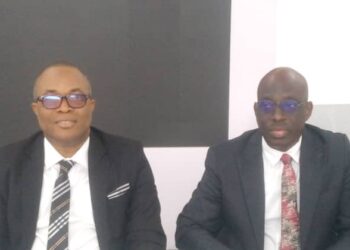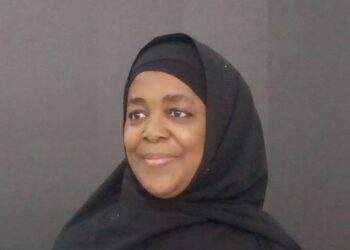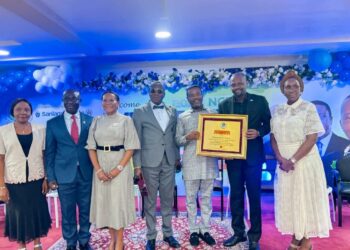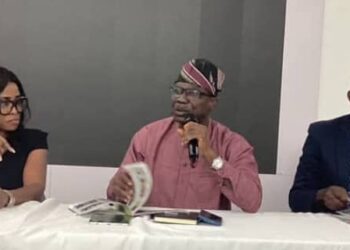Health insurance the game over for for life without adequate health protection is beginning to gain acceptance across the federation with Anambra, Delta and Lagos leading in the pack of 19 states at various stages of implementing own universal health insurance coverage schemes. Besides the growing national acceptance, is an endorsement of research by World Bank and WHO which showed that 100 million people are pushed into extreme poverty on an annual basis due to healthcare expenses.
Meanwhile, health insurance has been operating in Nigeria for over 15 years, with low uptake still staring. This prompted Leadway Group to adderss this via a recent virtual Leadway Assurance Media training for insurance journalists in Lagos, where the head, Medical Services, Leadway Health, Dr. Temitope Falaiye, said Nigeria still spends a relatively small proportion of national income, translating to about 4 per cent of Gross Domestic Product(GDP) on health against the agreed 15 per cent at the 2001 Abuja Declaration.
Nigeria’s 77.23% out-of-pocket expenditure on health he said is amongst the highest in the world and the highest in Africa, despite the available voluntary National Health Insurance Scheme(NHIS) covering less than 5% of the population, of with a commanding informal sector holds of 60% of its GDP and largely uncovered by health insurance.
“To bridge the coverage gap, several states have commenced the establishment of State Health Insurance Schemes. Presently, about 19 states are at various stages of their implementation journey. Anambra, Delta and Lagos state have particularly made significant progress in enrolment. Private health insurance accounts for less than 3% of the Nigerian population,” he pointed out.
Admitting that there is no one-size-fits-all approach to achieving Universal Health Coverage(UHC) each states adopts what suits it best to address its peculiarity. However, he said there are challenges that cut across which include underfunding, funding allocation in favour of secondary and tertiary care as against primary healthcare, as well as poor public financial management. Other hiccups he listed include, ” limited political commitment to health and primary healthcare, poor policy formulation, lack of clarity on roles and responsibilities at different levels of the system, lack of measures to assess quality of care, lack of confidence in healthcare systems and human resource shortages (workforce)”
As a hedge to these, he called for diversification of sources of funding, increased funding for primary healthcare services through public-private partnership, and state funded private health insurance in collaboration with private health management organisations(HMOs). He also suggested incentives for health providers in rural communities, and fraud prevention systems to check corruption.
To sustain a national order he called for a national UHC roadmap involving all stakeholders, national, state and international partners. For the government, he wants an enabling environment to promote corporate social responsibility(CSR) for UHC initiatives, have a monitoring and evaluation framework with data from key UHC indicators.
On Leadway Health, which started operation 1st of January, 2021, he said, the HMO is made up of highly experienced, technology savvy health insurance professionals who are driven to change the perspective of health insurance in Nigeria. “At the onset, we analysed the customer journey, identified pain points and deployed targeted solutions to ensure a best in class experience for both health providers and clients. “The growth of the company has been exponential with over 51,000 enrollees spread across the country (inclusive of corporate, retail and NHIS,” he stated.
Also, Mr. Gbolahan Oluyemi of the Leadway Capital & Trusts Ltd, while making presentation on Understanding Wills and Trusteeship, advised Nigerians on estate planning which is the preparation and planning to manage an individual’s asset base after demise or incapacitation. He explains, “there are different modes of estate planning and they include, trust, inter vivos gifts and wills. A trust is an arrangement whereby a person transfers an asset to a person (Trustee) to hold in trust for the benefit of a third party (Beneficiary). A Will is a legal document by which an adult expresses how he/she wants his/her assets/property to be distributed after his/her death.”
He said will writing ensures that assets will be distributed according to stated wishes, offers protection for beneficiaries, excuses the need for Letters of Administration, contains an inventory of assets and reduces fraud in the succession process as well as ease access to the retirement savings. Earlier, Principal Investment & Strategy, Leadway Assurance, Joshua Ogbeifun, charged journalists to continue to deepen insurance awareness and education through information dissemination, noting that it improves penetration as well as insurance industry profitability.









































